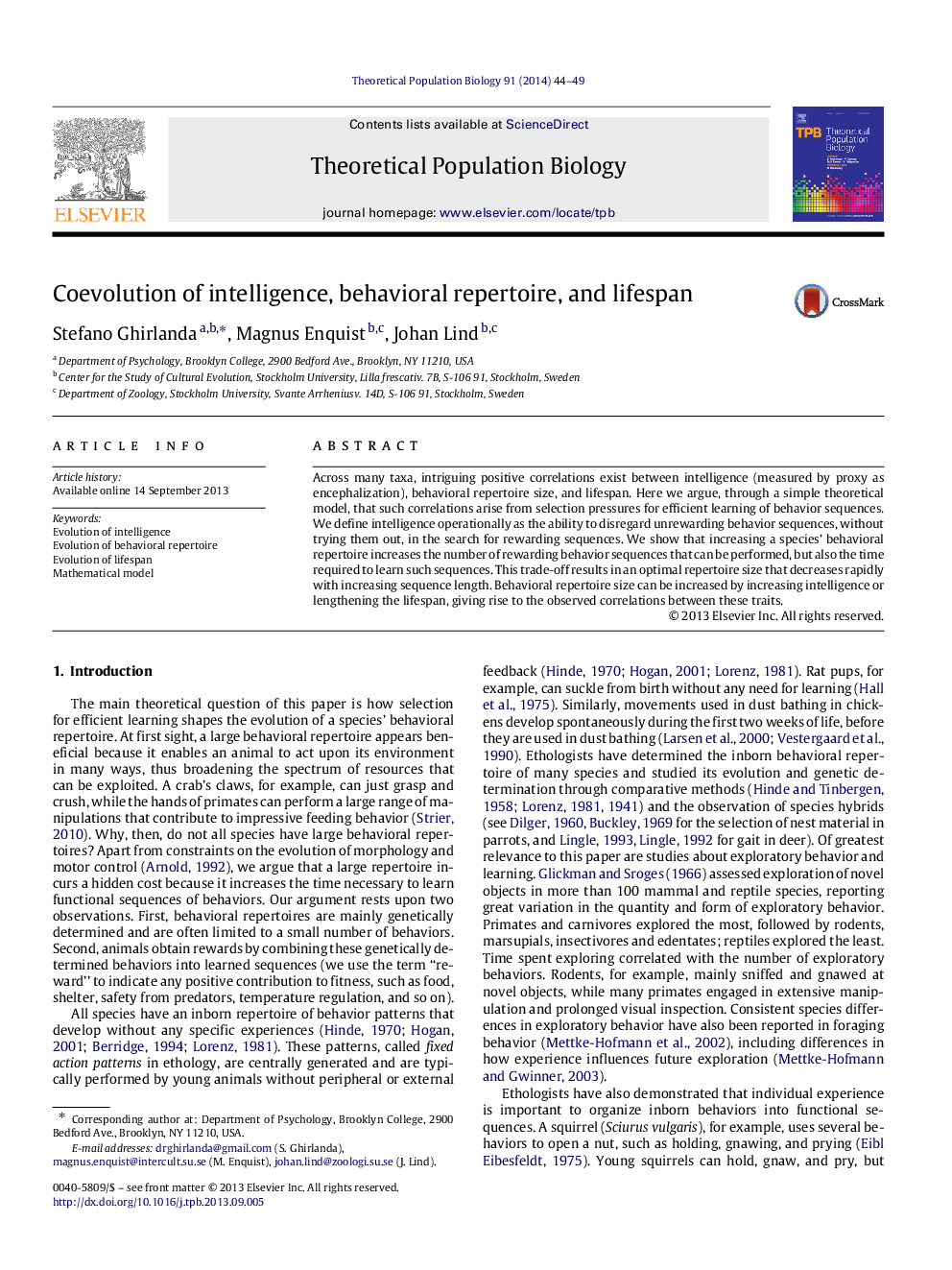| Article ID | Journal | Published Year | Pages | File Type |
|---|---|---|---|---|
| 4502369 | Theoretical Population Biology | 2014 | 6 Pages |
Across many taxa, intriguing positive correlations exist between intelligence (measured by proxy as encephalization), behavioral repertoire size, and lifespan. Here we argue, through a simple theoretical model, that such correlations arise from selection pressures for efficient learning of behavior sequences. We define intelligence operationally as the ability to disregard unrewarding behavior sequences, without trying them out, in the search for rewarding sequences. We show that increasing a species’ behavioral repertoire increases the number of rewarding behavior sequences that can be performed, but also the time required to learn such sequences. This trade-off results in an optimal repertoire size that decreases rapidly with increasing sequence length. Behavioral repertoire size can be increased by increasing intelligence or lengthening the lifespan, giving rise to the observed correlations between these traits.
